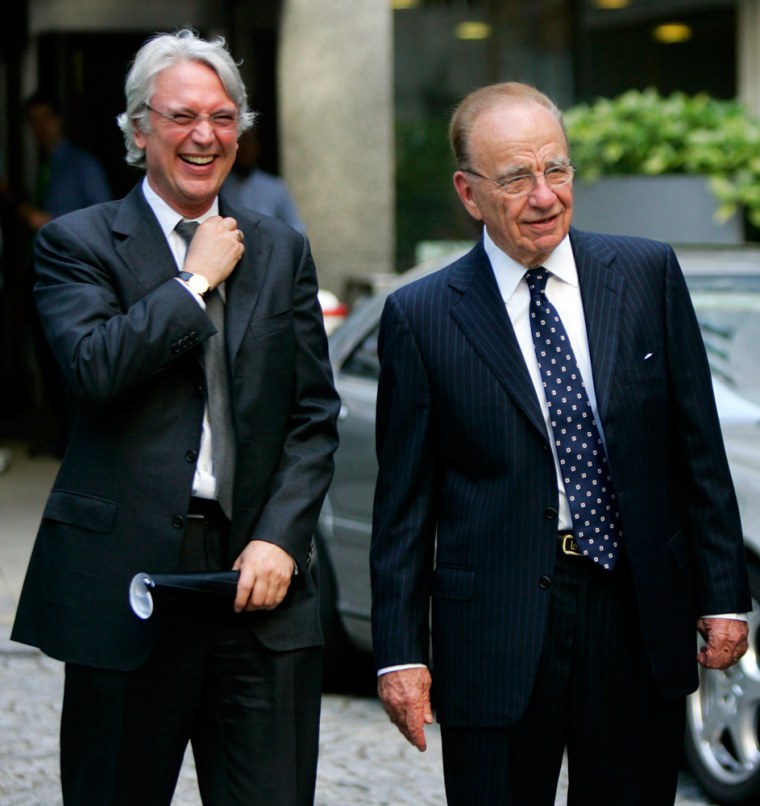A London tradition spanning three centuries is ending as Reuters abandons Fleet Street — the longtime home of Britain's scribes — capping a transformation that has seen the entire industry move to cheaper, less-fabled quarters.
The move by Reuters, the last major British news company to call Fleet Street home, closes an era when the booze-fueled reporters of a male-dominated industry would sidle up to local bars with sources, colleagues, and competitors alike. "If you wrote rubbish you were shouted out of the pub the following day," reminisces one.
"Fleet Street as a geographical home of the press is now a deserted village, full of memories everywhere," Canon David Meara said at Wednesday's ceremony to mark the departure in St. Bride's, the traditional journalist's church.
While the new, faraway offices may be able to house modern printing presses, critics say they lack the character of Fleet Street — a stone's throw from cathedral, pubs and monuments. In a telling reflection of the new era, the building that once housed the venerable Daily Telegraph is now an investment bank.
Fleet Street had ‘film noir glamour’
"What Fleet Street had was a certain film noir glamour," said Kim Fletcher, editorial director of the Telegraph Group. "Being film noir is slightly seedy, but certainly exciting. It was something of a Runyon-esque society — reporters might still be wearing trench coats and they might still be drinking too much.
"This was not a time when journalists went jogging on their lunch hours."
Papers such as The Daily Telegraph and the Daily Mirror lined Fleet Street in massive buildings. At night, vans clogged the streets to collect the day's papers and begin distribution.
"You were intimately connected to what you were doing," Fletcher said. "The buildings would start to shake when the presses started. It's become much more of a respectable white collar profession today, just because you're disconnected from the industrial muscle of those printing presses."
Technological advances made newspapers less expensive to produce and enabled a shift in production from in-house publishing plants to regional printing centers. Media companies began heading to cheaper and more modern quarters outside Fleet Street in the 1980s.
Today, the area is a legal and banking center, with international finance firm Goldman Sachs now housed in the former Telegraph building.
"You can practice journalism anywhere," said Mike Molloy, editor of the Daily Mirror from 1974-84, and editor-in-chief until 1989.
"It's become an electronic industry now, not so much with people going out into the towns and streets and telephoning their copy back to the office. There was no need for it to be on Fleet Street."
But many who worked on Fleet Street lament the loss of the excess and collaborative atmosphere of the former publishing hub.
"It was very much an idea factory," said Bill Hagerty, former deputy editor of the Daily Mirror and editor of The People, a Sunday newspaper. "Everybody would drink together, and you would come away from having a drink with friends with an idea that would end up being an article or series in the newspaper."
The Associated Press was on Fleet Street, sharing a building with the Press Association, until 1951, when it moved a few streets away to Faringdon Road. The AP is now headquartered nearby on Norwich Street.
Reuters organized a service Wednesday afternoon at St. Bride's as a farewell to the area.
"It seems funny that for such an unholy profession, they're having a farewell ceremony blessed by God," Molloy said.
Rupert Murdoch, chairman of media giant News Corp. and widely credited with beginning the British newspaper industry's shift outside the city center, was tapped to read the lesson at the service, said Reuters spokeswoman Yasmeen Khan. About 300 people, including newspaper editors and Reuters staff past and present, were invited for the ceremony, she added.
Commemorating an era
Khan said the service would commemorate Reuters' departure from Fleet Street, which will be completed in August, as well as the area's overall demise as a news hub. "We are the last big media company to go," she said.
Reuters is moving all its 2,500 London staff to an office in east London's Docklands district as part of a cost-cutting program. Its offices at 85 Fleet Street house management staff while other employees, including editorial staff, are based in five other buildings around the area.
DC Thomson, Dundee-based publisher of a stable of Scottish newspapers, still employs 15 staff at its office on Fleet Street. Agence France-Presse also has an office at 72 Fleet St.
